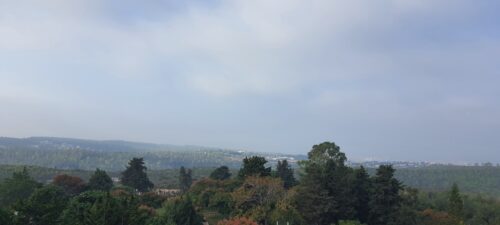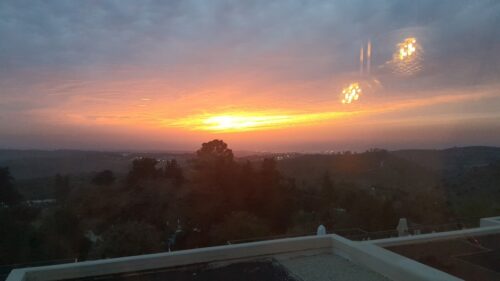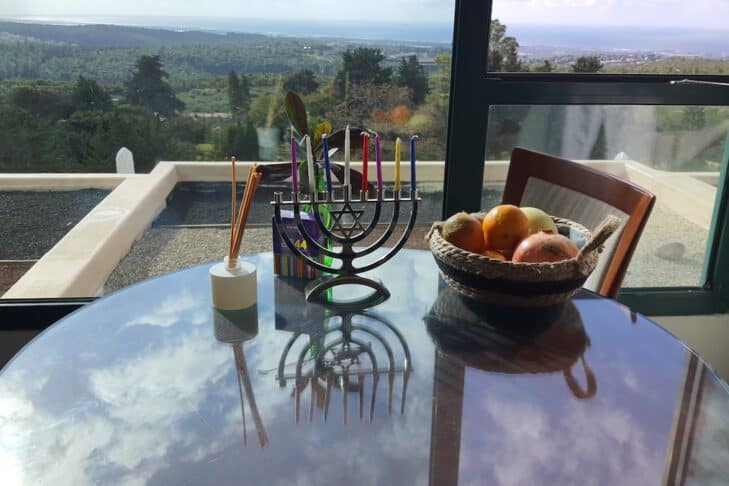My husband, Danny, and I built our beloved house about 12 years ago. Danny, whom I met during my undergraduate studies, stated at the very beginning of our acquaintance that his dream was to build a detached house in the Green Galilee. I, a committed urbanite, dismissed him with a laugh and moved on. Later, after 13 years in Jerusalem, we built our lovely house in Kibbutz Matsuva, a quiet, green and beautiful kibbutz located about 2 kilometers from Israel’s border with Lebanon.
The beginning was not easy: the distance from the city, close community life and proximity to the border were foreign and even a little strange to us. Slowly, slowly, we fell in love with this beautiful place that combines the green mountain with the blue sea, breathtaking sunsets and amazing views. The lively community life in the kibbutz where we raised our three children has become part of our identity. We celebrated holiday ceremonies together, gathered to mark various events and celebrated lifecycles.

All of this now seems distant and unreal. Since Oct. 7, the day the terrible massacre took place and the war broke out, we have become displaced persons in our own land. We packed a suitcase with everything that seemed essential to us and locked the house. We did not imagine that we would be wandering outside our home for over a month.
I move between feelings of frustration, anger, sadness and guilt for allowing these negative feelings to take over me at a time when my luck was better than the residents of the South who lost their family members, their homes and everything they owned. Routine action such as smiling, having coffee with a friend and rolling laughter is accompanied by feelings of guilt.

I think a lot about the essence of Jewish peoplehood and shared destiny and what a decisive and essential role we have as a Jewish people, wherever we are, to gather together the fragments, build and restore the land and the people. The trauma of Oct. 7 and the existential anxiety are the property of the Jews of Israel and the Jews of the world; what was no longer exists, and it seems to me that the relationship between Israel and the diaspora will also redefine our commitment, goals and challenges as a nation.
The mourning for 1,400 dead and 240 kidnapped is unbearably difficult, but as the poet Haim Gouri wrote, “You wander in the neighborhood of hope and continue to hope. You are allowed; it is a human trait to hope, to bet on some good that will come….”
I am hoping for the days when everyone will live in their home safely and quietly.

Jackie Levy-Atias is director of Oranim International at Oranim College. She is an educational consultant with CJP’s Boston-Haifa Connection and serves on the Jewish Peoplehood Committee.


